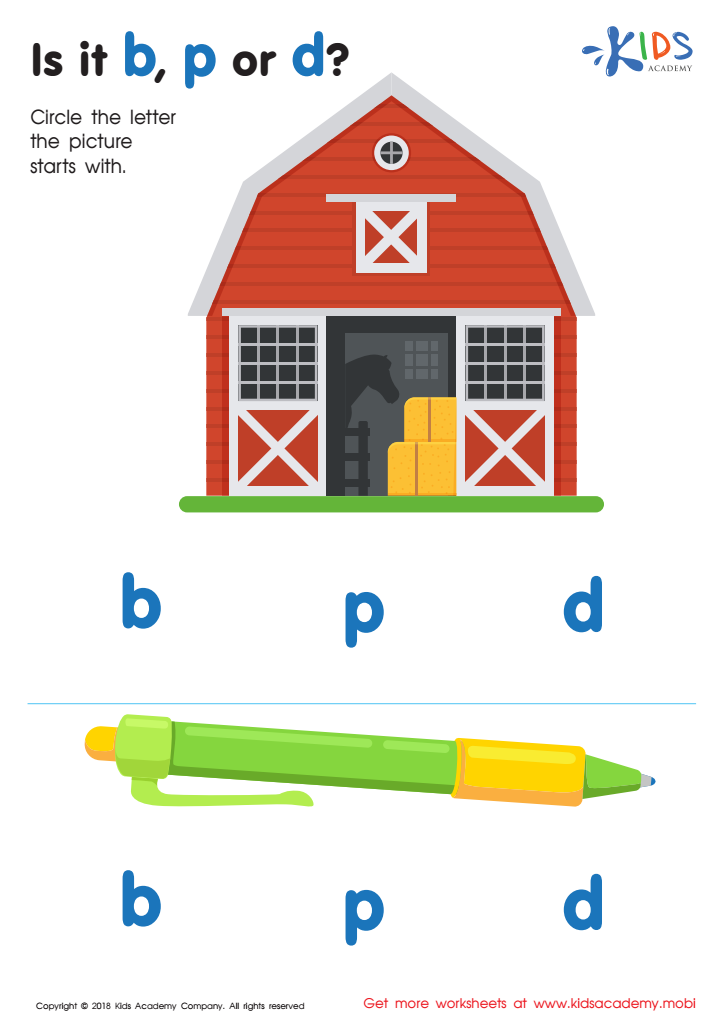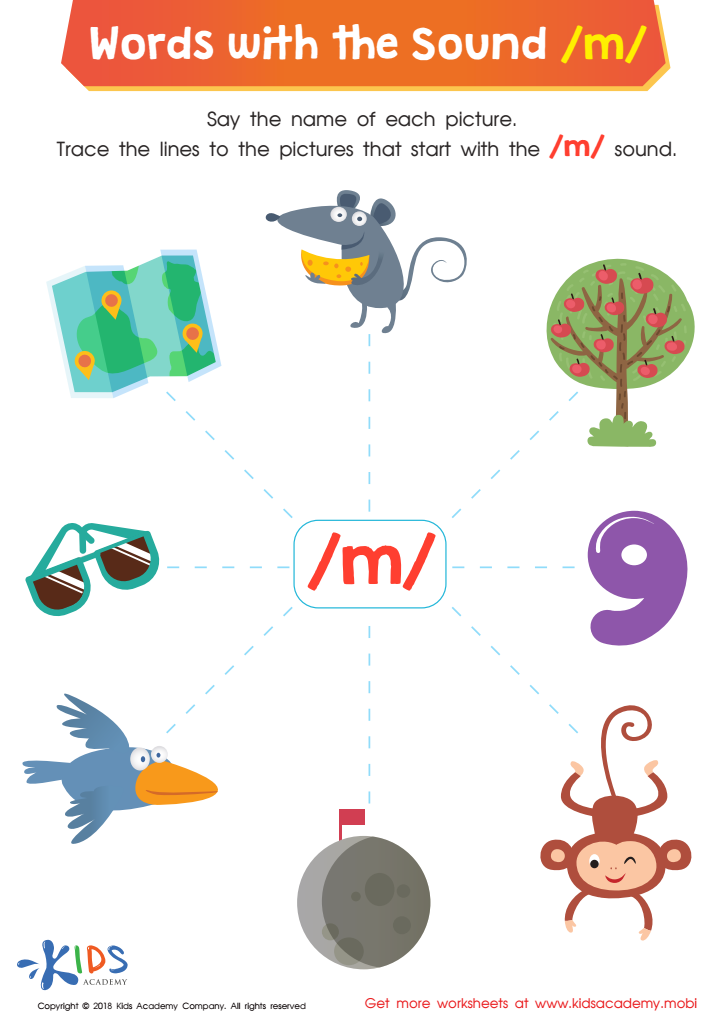Phonics practice Normal Beginning Sounds Worksheets for Ages 5-8
5 filtered results
-
From - To
Discover our engaging Normal Beginning Sounds Worksheets designed for children ages 5-8, perfect for enhancing phonics skills! These worksheets feature colorful illustrations and playful activities that help young learners identify initial sounds in words effectively. Tailored for early childhood education, they provide essential practice in recognizing letters and corresponding sounds, fostering literacy development. Ideal for teachers and parents alike, our resources encourage independent learning and master the foundational building blocks of reading. With a range of exercises, your child will gain confidence in their phonics abilities while having fun! Start their journey toward literacy success today with our phonics practice worksheets!


Twin Onset Worksheet


Is it b, p or d? Worksheet


Words with sound p Reading Worksheet


Words with sound f Reading Worksheet


Words with Sound M Reading Worksheet
Phonics practice, particularly focusing on normal beginning sounds, is essential for children aged 5-8, as it lays the foundation for reading and writing proficiency. Understanding phonics helps students decode words, develop word recognition, and enhance their overall literacy skills. By mastering the initial sounds, children can better tackle unfamiliar words, which fosters confidence in their reading abilities.
Moreover, phonics practice promotes language development; children learn to connect sounds with letters, which enhances their vocabulary and improves spelling. Engaging in these exercises aids cognitive skills as children begin to analyze and manipulate sounds, thereby strengthening their critical thinking abilities.
For parents and teachers, investing time in phonics practice is crucial for child development. When kids grasp how sounds form words, it allows for a smoother transition into more complex language tasks, ultimately affecting their academic performance positively. Furthermore, early mastery of phonics can prevent future reading difficulties, setting a strong trajectory for lifelong learning.
In summary, phonics practice in beginning sounds is a vital component of early education, equipping children with indispensable skills for effective communication, literacy, and academic success. It empowers them to become confident, capable readers who are well-prepared for future educational challenges.

 Assign to My Students
Assign to My Students















